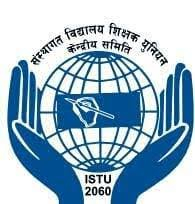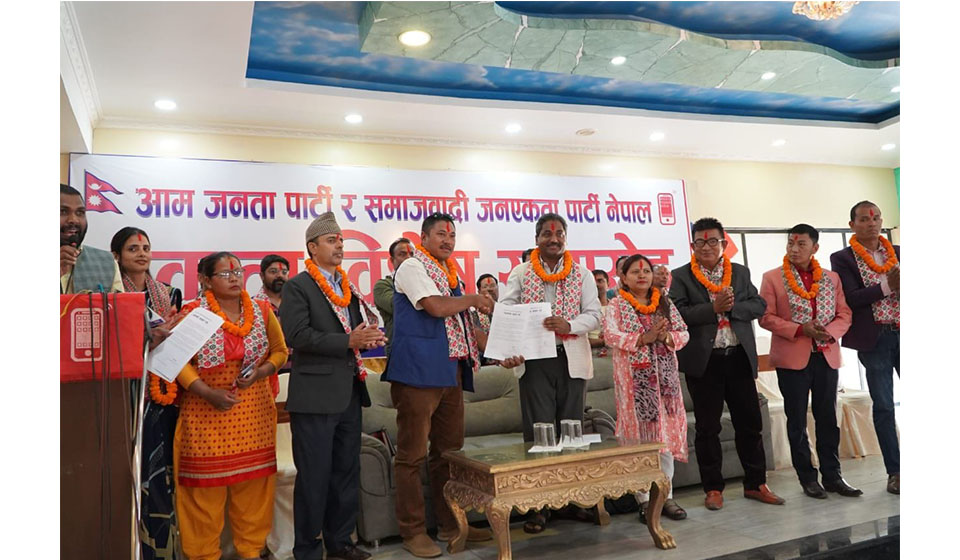
OR
Human, trade union rights situation of education workers disappointing in Asia-Pacific
Published On: December 12, 2023 08:45 PM NPT By: Republica | @RepublicaNepal

KATHMANDU, Dec 12: The human and trade union rights situation of education workers in the Asia-Pacific region is found to be disappointing.
A report titled "State of Rights of Education Workers in Asia-Pacific (2021-22)" launched here today by the Education International: Asia-Pacific (EIAP) highlighted the persistence of long-standing tensions and emergence of new conundrums in the human and trade union rights situation of teachers and education support personnel in the Asia-Pacific.
According to the report, most countries or territories in the Asia-Pacific accord legal recognition to the human, civil and political rights of teachers. However, in a considerable number of states, these rights are either totally denied to citizens, in general, on sectarian grounds or on the basis, particularly, of the teachers' sectoral profile.
In repressive contexts, teachers have also been particularly targeted and victimized by arbitrary arrests, torture and violent dispersals. Meanwhile, discriminatory practices based on sex, race, ethnicity, citizenship or disability in hiring, promotion or pay policies were observed during the survey.
Moreover, low salaries and dismal working conditions of teachers, including large class sizes and long work hours, continue to be major issues, according to the report.
It is highlighted that the casualization of employment remains a pressing concern of teachers in the region. Moreover, low salaries and the dismal working conditions of teachers, including large class sizes and long work hours, continue to be major issues, according to the report.
Sixty-Seven percent of total EIAP member organizations (63) in the region have responded to the survey, representing 24 countries out of 36 countries or territories in all five sub-regions, namely: South Asia, Southeast Asia, the Pacific, North Asia, and West Asia. Out of the total number of respondent unions, 29.73% represent the public sector only, while 43.24% represent mostly the public sector. The respondents were distributed across sectors from early childhood education to education support personnel, with most (86.49%) representing primary and secondary education workers.
During the report launch, EIAP Regional Director Anand Singh dubbed the report the "first of its kind," providing an overview of the human and trade union rights situation, particularly for teachers and education support personnel in the Asia-Pacific region.
As he said, the findings presented in the report underlined old, but recurring, and emerging impetuses to address the gaps between the realities faced by teachers and education support personnel and norms emanating from the core international human rights instruments as well as the recommendations.
Researcher Frank Lioyd Tiongson called for the improvement of the human and trade union rights of education workers while Institutional School Teachers' Union (ISTU) President Hom Kumar Thapa said private teachers have been denied their political and trade union rights.
RSS
You May Like This

Private school teachers place an ultimatum to withdraw decision of ending online classes within three days
KATHMANDU, July 17: Teachers associated with the Institutional School Teachers Union (ISTU) have placed an ultimatum asking all stakeholders concerned to... Read More...


Just In
- Sunkoshi-Marin Diversion Project’s tunnel construction nears completion, breakthrough scheduled for May 8
- Govt tightens security arrangement for Third Investment Summit 2024
- Pesticide residue found in vegetables in Nepalgunj
- Aam Janata Party and Samajwadi Jana Ekata Party merge
- 1,600 participants confirmed for Nepal Investment Summit
- Ilam-2 by-elections held peacefully, vote count likely to start tonight
- NEA schedules five-day power cut across Kathmandu Valley for underground cable installation
- Hundreds of passengers including foreign tourists in distress as poor visibility halts flights to and from PRIA







-1200x560-wm_20240427144118.jpg)






Leave A Comment